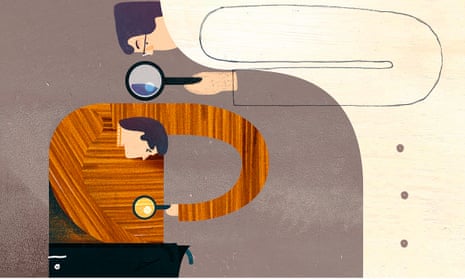In Singapore, in autumn 1967, hundreds of men and boys hurried to hospital emergency rooms, clutching their penises, convinced they were rapidly retracting into their bodies and that if they let go of them, they’d die. Such panics aren’t as rare as you might imagine. In the early 2000s, in Nigeria and Benin, several people were killed in retaliation for using magic to shrink their enemies’ genitals. The vanishing-penis phenomenon – known by its south-east Asian name, koro – is listed in the psychiatry bible, the DSM, and has cropped up worldwide for centuries.
A common response is to scoff at the ignorance of the uneducated. But in The Geography Of Madness, journalist Frank Bures shows that what such “culture-bound syndromes” demonstrate is the astonishing power of culture and belief – on all of us. Whether you’re Beninese, Bolivian or British, the ways your life goes wrong will be heavily influenced by how you believe it could go wrong.
Self-styled rationalists often seek to debunk the influence of mind over body: it seems too damned weird that, for example, women who believe they’re at risk from heart disease are 3.6 times more likely to die from heart attacks than those with identical risk factors, but who lack the belief. (That’s a 1992 finding from the respected, long-term Framingham Heart Study.) But on second thoughts, wouldn’t it be weirder if the staggeringly complex organ between our ears didn’t exert strong effects on all the other, less complex organs it coordinates and controls? One effect that’s especially relevant here, Bures explains, is “bio-attentional looping”: you fear something, which causes you to monitor your body for symptoms, which – lo and behold! – you find. That heightens your fear, which increases your self-monitoring, and so on. It’s no coincidence that in almost every recorded case of koro, the victim already knew of the condition, so was primed to detect it.
I’ll leave it as an exercise for the reader to determine whether merely monitoring your body for signs of genital retraction (or nipple retraction, the female version) can induce the feeling it’s happening, but can anyone doubt that bio-attentional looping affects us in countless other ways? We keep reading about how we’re all underslept and distracted these days, so we can’t help scanning the body for the signs, which obligingly present themselves. (Are you stressed? Feel carefully for traces of tension in the body. Keep going. OK – now are you stressed?)
It hardly matters that the belief starts off being false, since believing it makes it true. Those koro victims didn’t have vanishing penises, obviously. But once they believed it could happen, the sensations of shrinkage were real. And what’s the difference between believing you’re stressed and being stressed? There isn’t one. We relate to the world, even our own bodies, through a thick web of beliefs, of which we’re largely unaware. You might be tempted to respond that your beliefs are the reasonable ones to hold. Perhaps. But then of course that’s what you’d believe.

Comments (…)
Sign in or create your Guardian account to join the discussion